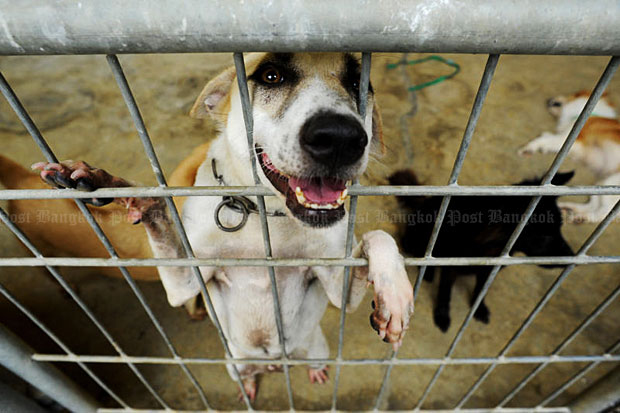
Thailand urgently needs a new approach to control the stray dog population, because the current programme is not working and public health is being placed at risk, the Department of Livestock Development has warned.
Prapas Pinyocheep, director of the Bureau of Disease Control and Veterinary Services, said on Monday the latest nationwide survey of the dog population, in 2014, concluded there were around 8.5 million dogs in Thailand.
He said about 700,000 of them were considered to be strays, and about half of this group, 340,000, were females. As a single female could produce as many as 10 pups a year there was the potential for the stray canine population to be bolstered by up to 3.4 million animals every 12 months.
Stray dogs were unclean, caused noise pollution and road accidents, and spread pestilence -- particularly rabies.
Mr Prapas said the survey found that 90% of animals that were found with rabies were dogs, and 60% of rabid dogs were stray dogs.
It was difficult to vaccinate stray dogs against rabies, he pointed out, which added to the risk of people catching the disease from a bite.
Current programmes for dealing with stray dogs did not tackle the root of the problem, because authorities were allowed to control the population only through sterilisation, catching and putting them in shelters and encouraging people to adopt them.
Sorawit Thaneto, the department’s deputy director-general, said all related agencies had to come together and agree on the systematic management of stray dogs, to ensure that the population was kept to an acceptable level.
He said Thailand needs to develop a dog population database, with proper registration and monitoring, to prevent the spread of canine-borne diseases to other animals or people.
Dog owners should be held responsible for their pets, to prevent the animals being abandoned and to reduce the number of unwanted dogs.
The country also needs a strict law against the illegal trade in dogs, to prevent their being slaughtered.